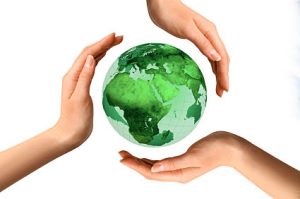
Environmental problems and dangers
acid rain, air/ land/water pollution, deforestation, endangered species, genetic modification of crops, loss of biodiversity, natural resource depletion, ocean acidification, ozone layer depletion, overpopulation, species extinction, urban sprawl, waste disposal -> climate change, global warming
Nouns/ Noun expressions
carbon-dioxide, carbon footprint, conservation, a conservation group/environmental organization, domestic/household waste, ecosystem, emission, environmental problems, a food chain, a fossil fuel, greenhouse gases, a habitat, natural resources, oil spills, overfishing, the ozone layer, pesticides, poaching, protection, reforestation, toxic waste, wildlife
Adjectives
eco-friendly, energy-efficient, environmental, renewable, sustainable, toxic
Verbs
to ban, to carpool, to clear-cut, to compost , to consume, to destroy, to emit, to fertilize, to minimize, to pollute, to preserve, to protect, to recycle, to reduce, to reuse, to waste
Verbal expressions
to be under threat, to become extinct, to exhaust fumes
Phrasal verbs
to cut down on, die out (to become extinct), to throw away (to dump), to use up
Additional Vocabulary
Nouns
overconsumption, packaging
Adjetives
biodegradable, edible, hazardous, single-use, uninhabitable
Verbs
to donate
Noun expressions
green belt, renewable energy
Verbal expression
to sort waste
Exercises
1. Name the environmental problems illustrated in the pictures.

1 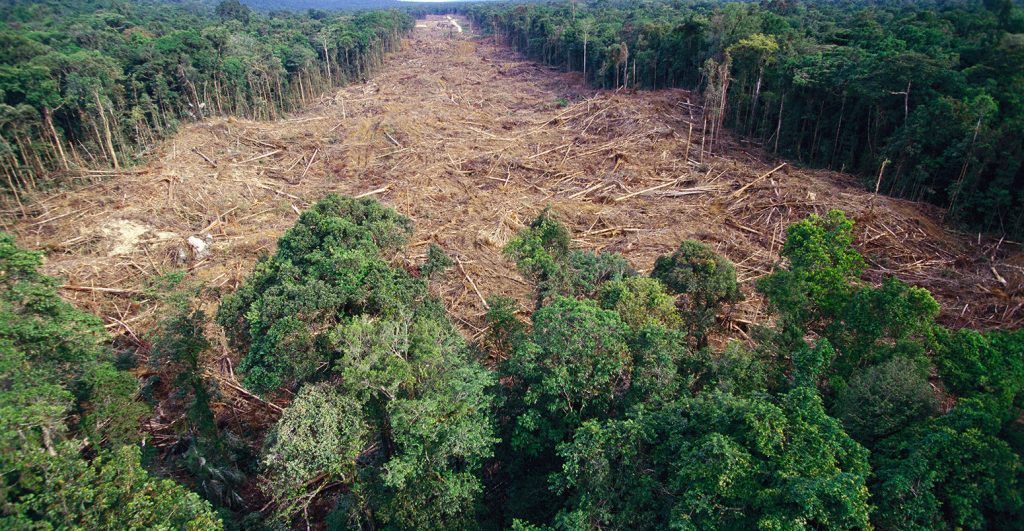
2 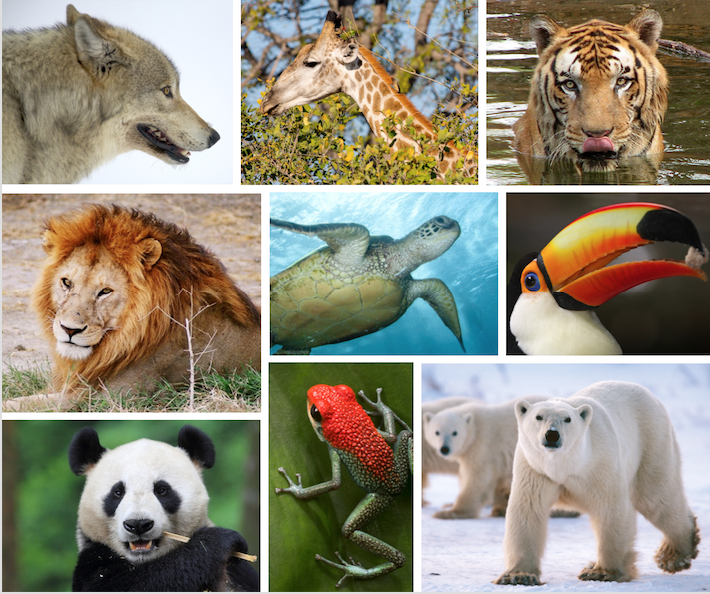
3 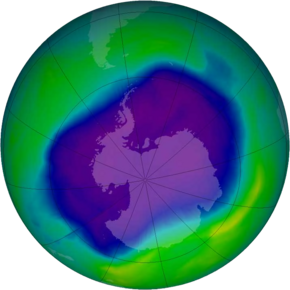
4 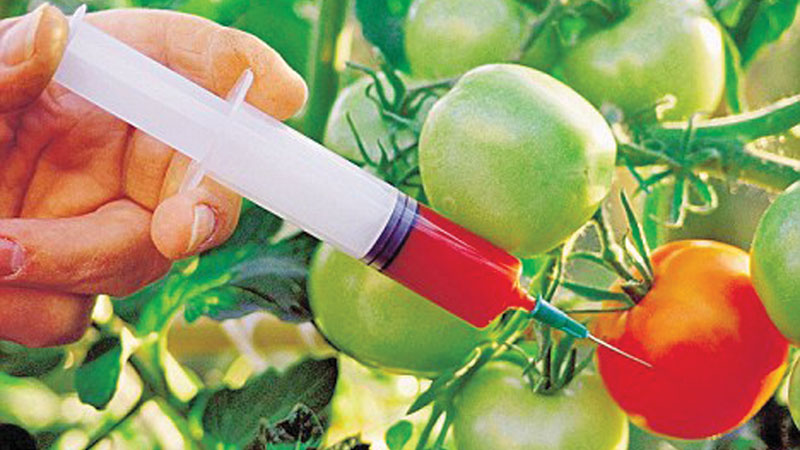
5 
6 
7 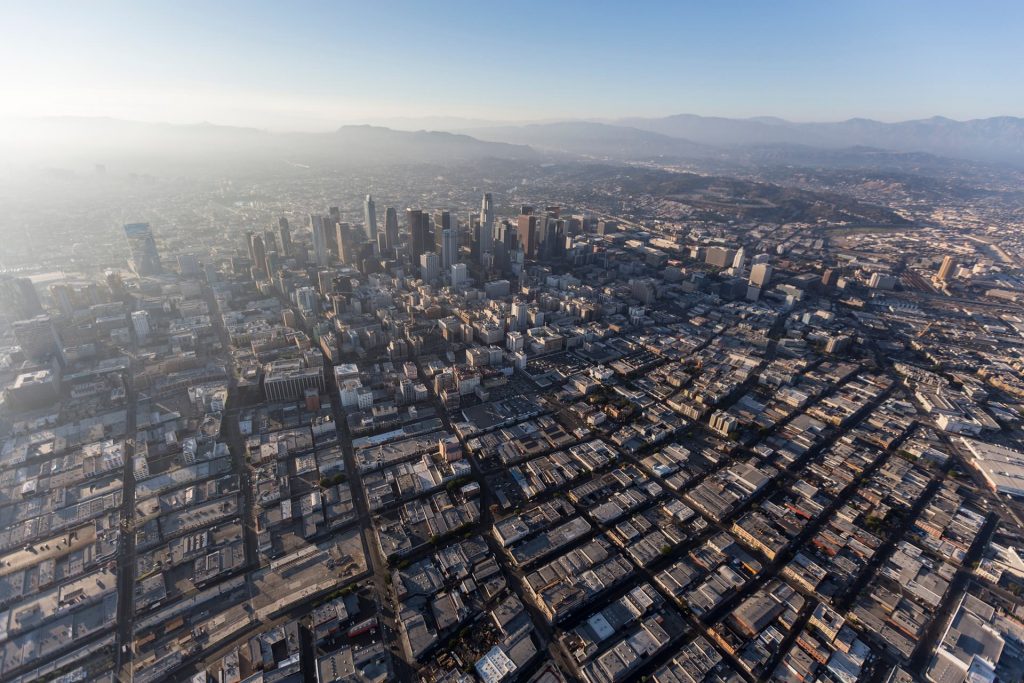
8 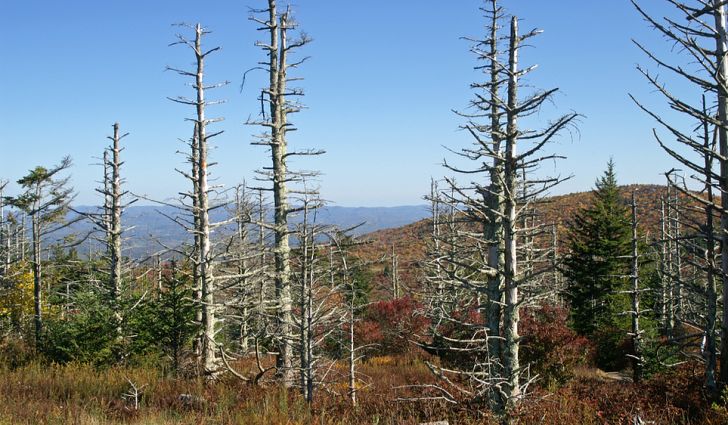
9 
10
2. Match the problems to their descriptions
climate change, waste disposal, urban sprawl, overpopulation, natural resource depletion, overfishing, loss of biodiversity, acid rain, ocean acidification, water pollution
- The planet’s population grows by 1.13% per year, which works out to 80 million people.
- It is a direct impact of excessive production of CO2. 25% of CO2 is produced by humans. The main impact is on shellfish and plankton in the same way as human osteoporosis.
- It poisons and weakens trees, damages leaves and limits their available nutrients.
- Statistics created by NASA state that global temperatures have risen by 1.7 degrees Fahrenheit since 1880.
- It results in land degradation, increased traffic, environmental issues and health issues in rural areas.
- Human activity is leading to the extinction of species. Eco systems, which took millions of years to perfect, are in danger.
- Plastic, fast food, packaging and cheap electronic wastes threaten the well-being of humans. It is one of urgent current environmental problem.
- Industrial development is filling our rivers, seas and oceans with toxic pollutants which are a major threat to human health.
- It is estimated that 63% of global fish stocks are now considered overfished.
- Recent studies have shown that humanity uses so many natural resources that we would need almost 1.5 Earths to cover our needs.
3. Name the items you can see in the pictures

1 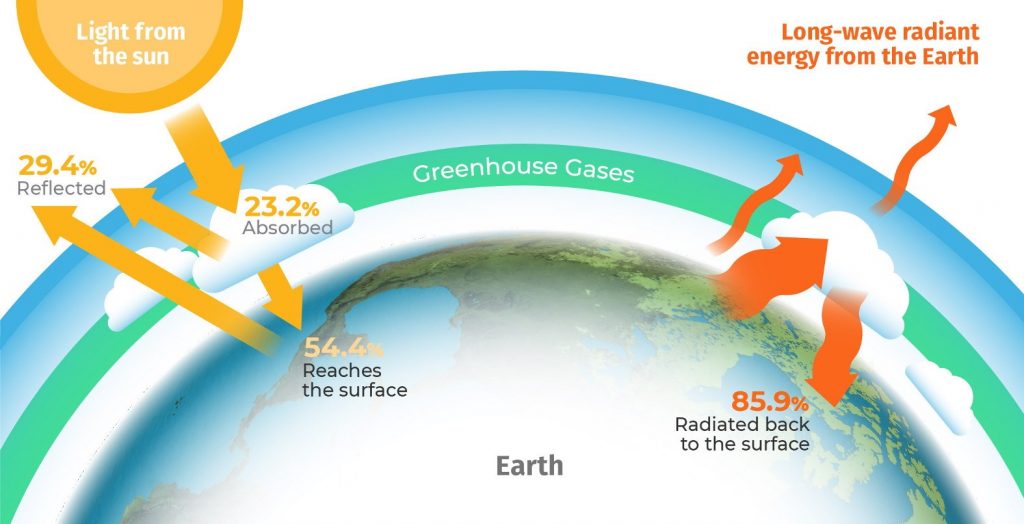
2 
3 
4 
5 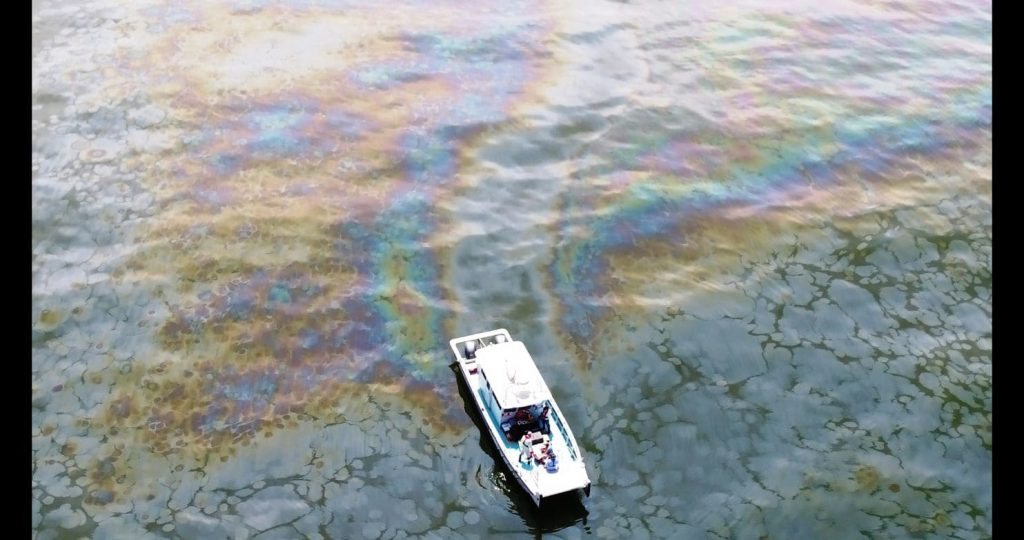
6 
7 
8 
9 
10
4. Match the expressions to the definitions.
|
1. food chain |
a) global changes in temperature, wind patterns, rainfall etc. |
|
2. carbon footprint |
b) a measurement of the amount of carbon-dioxide a person adds to the atmosphere |
|
3. habitat |
c) rain that contains harmful chemicals that collect in the atmosphere when fossil fuels are burned |
|
4. greenhouse gas |
d) the protection and preservation of the environment and resources |
|
5. domestic waste |
e) rubbish from a house or apartment |
|
6. pollution |
f) animals or plants in danger of becoming extinct |
|
7. acid rain |
g) the order in which organisms in an ecosystem eat one another |
|
8. endangered species |
h) a gas in the atmosphere that stops heat from escaping into space |
|
9. climate change |
i) the place in which a species normally lives |
|
10. conservation |
j) the contamination of the environment, esp. by industrial waste products and chemicals like pesticides |
5. Choose the right word.
What can we do to protect the environment?
1) Switch off/turn on the lights when you leave a room.
2) Try to reuse/protect things instead of throwing them away.
3) Buy things in packaging/covers that can easily be recycled.
4) Walk or cycle instead of driving a car. This way you’ll increase/reduce the air pollution.
5) Plant/waste trees.
6) Throw away/compost food leftovers. You can then use it as a fertilizer.
7) Cut down on/consume the amount of paper you use.
8) Use your own reusable/ environmental bags for every shopping trip.
9) Volunteer with a conservation/reservation group, such as Greenpeace. If you don’t have the resources to volunteer your time, you can donate money.
10) Allow hair to air dry instead of using a hair dryer. You’ll waste/save on electricity use.
6. Complete the gaps with the following words
climate change, sea levels, food security, populated areas, emissions, atmosphere, rise, issue, extreme, extinction
Global warming is a long-term 1) … in the average temperature of the Earth’s climate system. It is an aspect of 2)… The term commonly refers to the continuing increase in average air and ocean temperatures since 1900 caused mainly by 3)… of greenhouse gases in the modern industrial economy.
The main causes include massive use of fossil fuels, deforestation, intensive farming, waste disposal, mining and overconsumption.
Future climate change effects are expected to include rising 4)… , ocean acidification and expansion of deserts in the subtropics. Surface temperature increases are greatest in the Arctic, with the continuing retreat of glaciers and sea ice. Predicted regional effects include more frequent 5) … weather events such as heat waves, droughts, wildfires, heavy rainfall with floods and heavy snowfall. Effects directly significant to humans are predicted to include the threat to 6)… from decreasing crop yields, and the abandonment of 7)… due to rising sea levels. Environmental impacts are likely to include the 8)… or relocation of ecosystems as they adapt to climate change, with coral reefs, mountain ecosystems, and Arctic ecosystems most immediately threatened. It is predicted that greenhouse gases will remain in the 9)… for a long time. The greenhouse effect is a natural phenomenon. However, the increase in greenhouse gases is linked to human activities.
Globally, a majority of people consider global warming a very serious 10)...
(abridged from https://en.wikipedia.org/wiki/Global_warming)
7. Study the global warming solutions. Match the solutions to the descriptions.
a) Sustainable transportation
b) Renewable energies
c) Sustainable infrastructure
d) Energy & water efficiency
e) Responsible consumption & recycling
f) Sustainable agriculture & forest management
1) …
The first way to prevent climate change is to move away from fossil fuels. The alternatives are solar, wind and geothermal energies.
2) …
Producing clean energy is essential, but reducing our consumption of energy and water by using more efficient devices (e.g. LED light bulbs, innovative shower system) that are less expensive and equally important.
3) …
Promoting public transportation, carpooling can definitely help reduce CO2 emissions and thus fight global warming.
4) …
In order to reduce the CO2 emissions from buildings – caused by heating, air conditioning, hot water or lighting – it is necessary both to build new low energy buildings and to renovate the existing constructions.
5) …
Encouraging better use of natural resources, stopping massive deforestation as well as making agriculture greener and more efficient should also be a priority.
6) …
Last but not least, recycling is an absolute necessity for dealing with waste. It is crucial regarding food (particularly meat), clothing, cosmetics or cleaning products.
(edited from https://solarimpulse.com/global-warming-solutions)
8. Answer the questions.
1) What are the main environmental problems? How are they interconnected?
2) What leads to global warming? How can it be prevented?
3) What can people do to protect the environment?
Vocabulary with translation
Environmental problems and dangers
acid [ˈæsɪd] rain – кислотный дождь
air/ land/water pollution [pə’luːʃn] – загрязнение воздуха, суши, воды
climate change – изменение климата
deforestation [ˌdiːˌfɒrɪˈsteɪʃn] – уничтожение лесов
endangered species [‘spiːʃiːz] – виды, находящийся под угрозой вымирания
genetic modification [ˌmɔdɪfɪ’keɪʃn] of crops – генетическая модификация культур
global [‘gləubl] warming – глобальное потепление
loss of biodiversity [ˌbaɪəudaɪ’vɜːsɪtɪ] – потеря биоразнообразия
melting of polar ice caps – таяние полярных ледников
natural [‘næʧrəl] resource depletion [dɪ’pliːʃn] – истощение природных ресурсов
ocean acidification [əˌsɪdɪfɪ’keɪʃən] – повышение кислотности в океане
ozone layer depletion – истощение озонового слоя
overpopulation [ˌəuvəˌpɔpju’leɪʃn]- перенаселенность
species extinction – вымирание видов
urban sprawl [‘ɜːbn sprɔːl] – стихийный рост городов за счёт сельской местности
waste disposal – утилизация мусора
Nouns/ Noun expressions
carbon-dioxide [ˌkɑːbən daɪˈɒksaɪd] – СO2, углекислый газ
carbon footprint – объём выброса углерода
conservation [ˌkɔnsə’veɪʃn] – охрана природы
a conservation group/ environmental organization – общественная группа за сохранение природы
domestic/household waste [də’mestɪk] – бытовые отходы
ecosystem [ˈiːkəʊsɪstəm]- экосистема
emission [ɪ’mɪʃən] – выброс (вредных веществ в окружающую среду)
environmental [ɪnˌvaɪərən’mentəl] problems – проблемы защиты окружающей среды
a food chain – пищевая цепочка
a fossil fuel – ископаемое топливо
greenhouse gases – парниковые газы (диоксид углерода, метан, закись азота и др; газы, которые поглощают и переизлучают инфракрасное излучение, оказывают существенное влияние на изменение климата)
a habitat – ареал/среда обитания
natural resources – природные ресурсы
oil spills – разливы нефти
overfishing – чрезмерный вылов рыбы
the ozone layer [‘əuzəun] – озоновый слой
pesticides [‘pestɪsaɪd] – пестициды, ядохимикаты
poaching – браконьерство
protection- охрана
reforestation – возобновление леса
toxic waste – токсичные отходы
wildlife – дикая природа
Adjectives
eco-friendly – экологически чистый
energy-efficient – энергосберегающий
environmental – относящийся к окружающей среде
renewable – возобновляемый
sustainable [sə’steɪnəbl] –экологически устойчивый (не наносящий ущерба окружающей среде), экологичный
toxic – ядовитый
Verbs
to ban – запретить
to carpool – совместно эксплуатировать автомобиль
to clear–cut – производить сплошную вырубку
to compost [ˈkɒmpɒst] – изготовлять компост
to consume – потреблять
to cut down on – сократить потребление
to destroy – уничтожать
to donate – вносить пожертвования
to emit – выделять
to fertilize – удобрять
to minimize – минимизировать
to pollute – загрязнять
to preserve – сохранять, оберегать
to protect – охранять
to recycle – перерабатывать
to reduce – уменьшать
to reuse – использовать заново
to waste – растрачивать
Verbal expressions
To be under threat (to be endangered) – находиться под угрозой вымирания
To become extinct/die out – вымирать
To exhaust fumes – выделять выхлопные газы
Phrasal verbs
to cut down on – сокращать потребление
die out (to become extinct) – вымирать
to throw away (to dump) – выбрасывать
to use up – истощить, израсходовать
Additional Vocabulary
Nouns
overconsumption – чрезмерное потребление
packaging – упаковка
Adjetives
biodegradable [ˌbaɪəudɪ’greɪdəbəl] – биоразлагаемый
edible – съедобный
hazardous [‘hæzədəs] – рискованный
single-use – одноразовый
uninhabitable – необитаемый
Verbs
to donate – жертвовать (деньги)
Expressions
green belt – зеленая зона (вокруг города)
renewable energy – возобновляемая энергия
Verbal expression
to sort waste – сортировать мусор
Links to related materials
Videos
1) How to Save Our Planet
2) Top 10 Inventions That Could Save the Planet
10) pollination drone, 9) coral reef cooler (restores the reefs), 8 paper upcycling, 7) air ink, 6) ecocapsules, 5) thermal hydrolisis (waste digestion), 4) a water vapor airplane, 5) ocean cleanup, 3) multipurpose solar panels, 2) water soluble bags, trash interceptor, water rotor, 1) alternative plastics
3) 22 Amazing Inventions That Will Save Our Planet
4) How Expert Top 10 Practical Ways to Protect the Environment for Everyday People
1) go paperless, 2) minimize utility uses, 3) carpool or use public transportation, 4) grow your own garden, 5) recycle correctly 6) avoid single-use plastics, 7) buy local, 8) eat less meat, 9) donate and sign petitions, 10) support sustainable business
5) ANIMALS in danger of EXTINCTION in 2021
https://www.youtube.com/watch?app=desktop&v=C1Jud3zOcL4